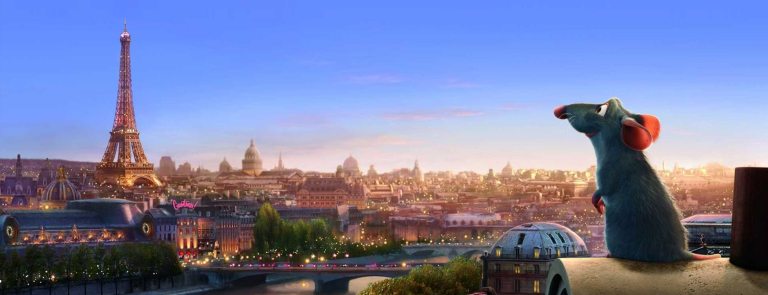This week I had some free time so I went to my DVD collection. I realized that my fingers lingered over the animation section. Animated movies have always been a sure-fire way to de-stress and have fun. I have seen and loved all kinds of animations; traditional full animation (The Lion King, Aladdin), the slightly disorienting Rotoscoping (Waking Life), uncanny puppet animation (Coraline), almost childish claymation (Anomalisa), Cel-shaded animation (Akira), realistic Motion Capture( The Adventures of Tintin) and achingly beautiful anime (Grave of the Fireflies). But in the complete domination of the computer generated animation of the last 20 years, a fan of the artistic style of Miyazaki’s work is quite unimpressed because despite the almost real animation, they barely make any real impression.
Pixar has been an exceptional studio bringing amazing movies that just happen to be animated. And that differentiates them from the rest. To a certain extent DreamWorks has also worked well and Disney remains strong in the field that it made, but Pixar is just impeccable. So, Pixar is great but which is the best Pixar movie of them all. Everybody has their own favorites and they do keep changing as you re-watch some movies and as you grow up. A similar thing happened to me recently.
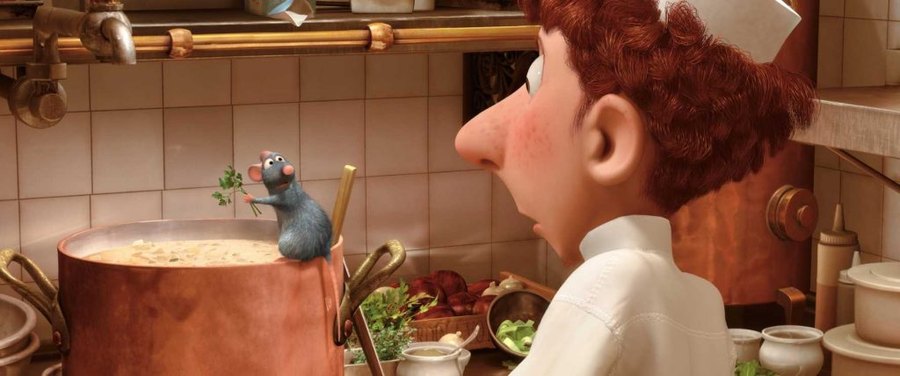
I picked up, from my DVD’s Ratatouille. I hadn’t seen it in a while so I put it in my laptop and sat to watch. For the longest time, actually ever since its release, ‘Wall E’ has been my favorite animated movie not just from Pixar but in general. And after watching ‘Ratatouille’, that had changed. I watched the movie again to make sure it wasn’t something I felt in the heat of the moment. And even 4 days from then, I stand by it.
‘Ratatouille’ is the story of a rat that has a hidden talent that may not change the entire world but it can rock somebody’s world to the core. To put it in plain terms, the rat cooks. That is quite cool and super-cute for a 10 year old to see but as an adult, the movie’s on-the-nose symbolism is underlined by its more subtle details. The best way to analyze the movie is to separate the characters.
Let’s start with the focus of the movie. No.. it’s not Remy the rat or Linguini but Anton Ego. Despite his limited screen-time, Anton Ego is what drives the film. He is Death incarnate and frankly scary-as-hole-hell for the 10 year-old I was when the movie came out. The man spends his time in his coffin-shaped room in front of a skull shaped typewriter writing reviews that kill restaurants.
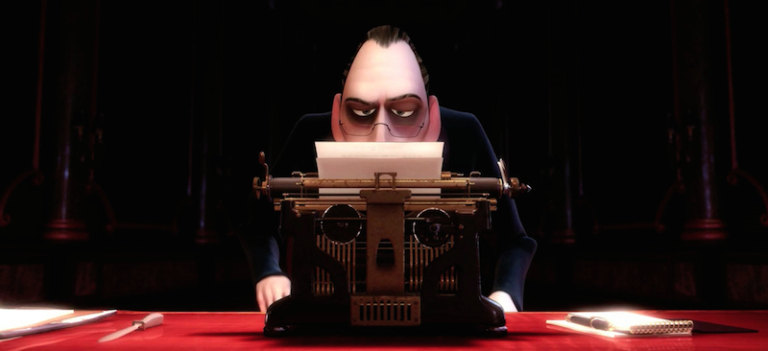
Even his title is The Grim Eater! Food is his entire world. And he tolerates nothing but the best. He spends the entirety of his life-like Frankenstein’s monster but one thing changes it all. The eponymous dish brings him back to life. The life he so enjoyed with his mother. And that 25 second flashback at his first taste of the Ratatouille, in my opinion, is just as touching as the famous montage from Up.
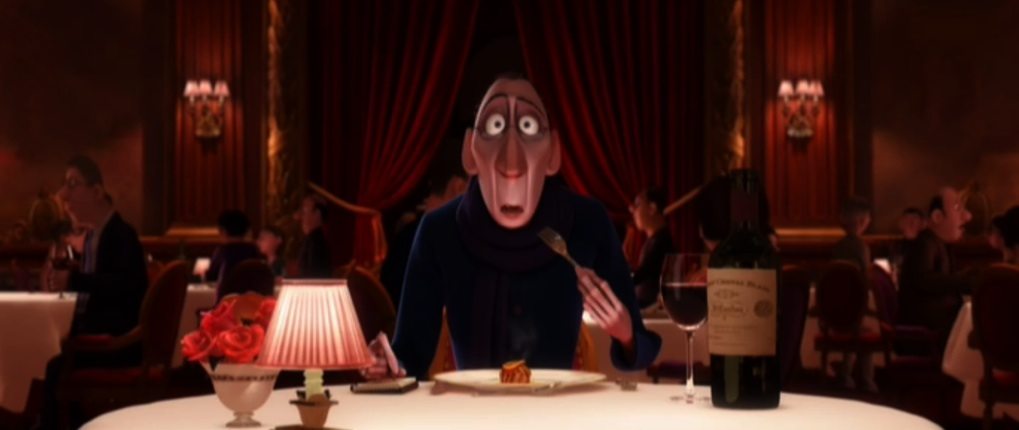
That single bite brings him back to life. The flashback shows us how we are innocent and full of life when we are children but with age, we grow grim, burdened by expectations, responsibilities, loss and failure. And Nostalgia alone, supported by a burning passion can bring the heart back into the chests of heartless adults. Anton is even shown saying this (albeit in a dream):
Linguini: Do you know what you would like this evening, sir?
Anton Ego: Yes, I’d like your heart roasted on a spit.
And then in reality, he orders “…A little perspective. That’s it. I’d like some fresh, clear, well seasoned perspective…” He gets what he ordered and that order changes his perspective to look at life and food. He gets a fresh perspective to look at food as something life-changing rather than as something to kill dreams over. He loses his ego of being the guy who destroys restaurants and thus changes becoming lively again.
Anton’s pessimism is met with the unending optimism of the ‘little chef’.
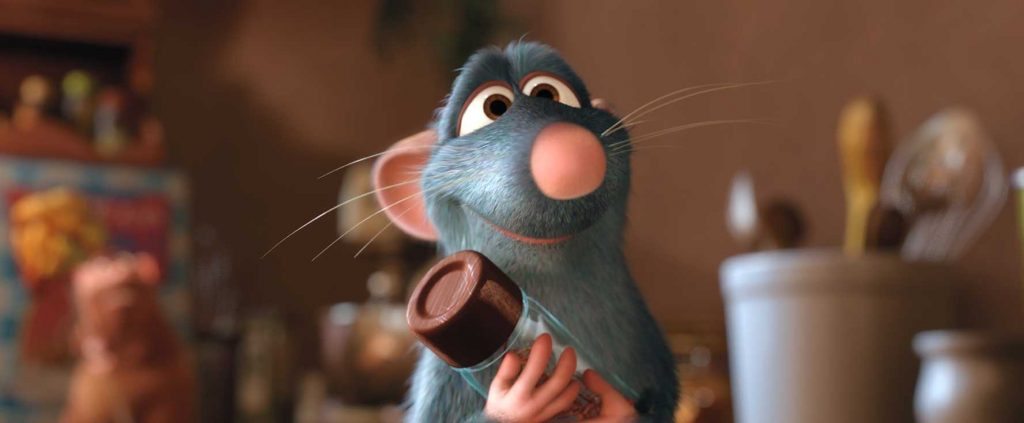
Remy is relentlessly optimistic that he, a rat, can become a chef. He symbolizes so many things. He is the David to the towering Goliath that is Anton. He is the outcast, preferring cooked food, in a family that is satisfied eating garbage for dinner. He is ironic. He is a paradox. But he is true to himself. Remy knows that he is different from the rest of his family. He is unnatural but he forges a path into the unknown. He is drawn to his passion. He is literally swept by the smell of food. He doesn’t shy away from danger as long as he is cooking. Even when he isn’t happy with his surroundings, he sticks through it till he finds the opportunity to explore his love. The romance in the movie is between Remy and food. He knows that his exterior cannot limit his inner feelings, despite being struck by self-doubt once in a while.
He stays grounded and remains comfortable in his skin even if it has hair on it. The most important symbol is maybe the fact that a rat (Black Death) gives a new life to the personification of Death i.e. Anton Ego.
Remy’s family of rats also holds a big place in his heart.
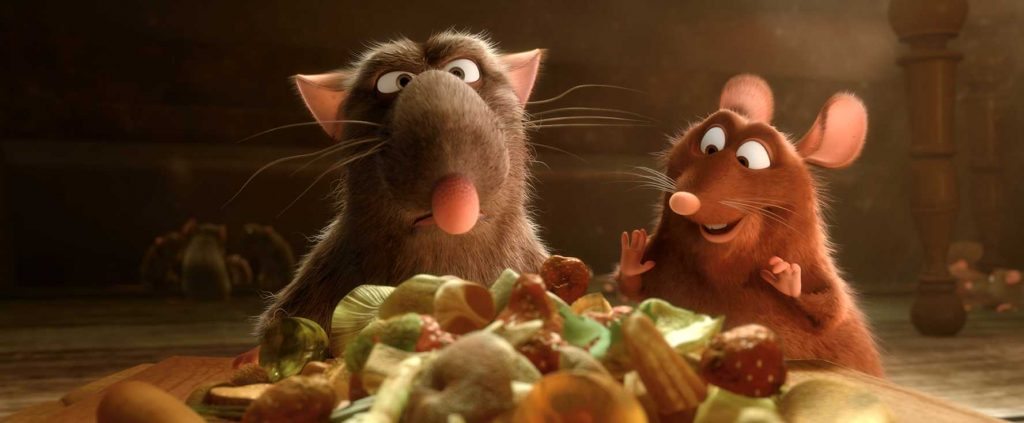
They are gluttonous, greedy and orthodox. They set limitations and control Remy because he doesn’t know enough. His father even shows him mouse-traps to scare Remy from following his dream which entails living with a human. His brother while loving and caring cannot understand what he sees in food. Remy’s controlling father, and his family illustrate how care sometimes holds us back, and how society views someone who is different from the norm. But once they see a pioneer forge the path and achieve something, they carry him on their shoulders. Also family helps him out when nobody else stays by him.
On the other hand, Gusteau who is a human (and a figment of Remy’s imagination) encourages Remy to face his fears, accept himself and pursue his ambitions. Ambition, alongside perseverance, in the end trumps limitations.
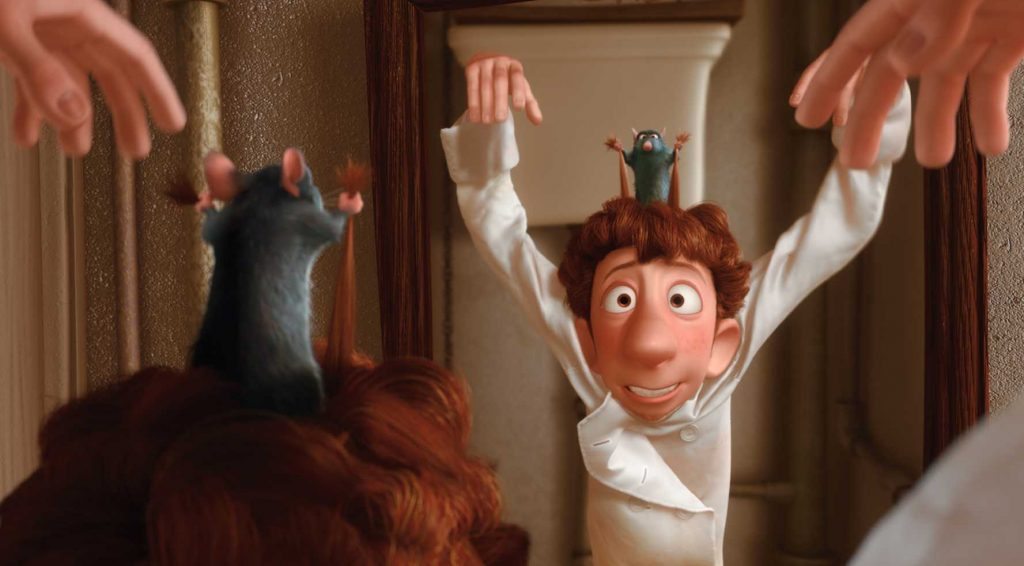
Gusteau’s illegitimate son and Remy’s instrument, Linguini is a poor mess of a guy. He has no strength. He even gets the job as a garbage boy because he is the son of “…Gusteau’s old flame….” He doesn’t have an identity of his own. Even his actions that make him famous are controlled by a rat in his chef’s hat. How low does your spirit have to be for you to give up control of your body to a rat? But he strengthens the point at the heart of the movie. Anyone can cook means that if you love to cook, you can cook, no matter who you are. It doesn’t mean that everybody can cook. And for Linguini, cooking is not the thing he is good at. He is a server. He waits tables, takes orders and he does it on roller-skates. That is his talent. Waiting tables is his talent. And anybody can wait tables so he does it with flair.
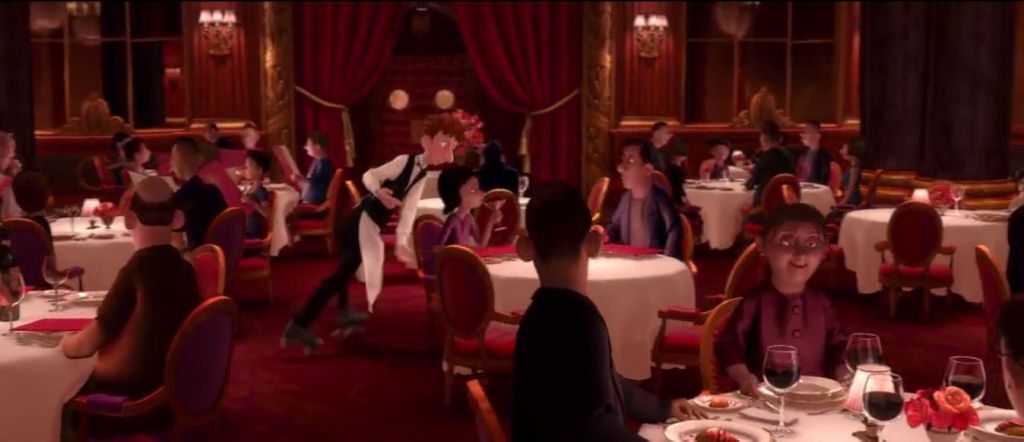
In conclusion, the movie is not about a rat who cooks as it is about how anybody can achieve what they want despite the challenges they may face.
All the characters are meant to represent different parts of our lives. When we are young we have the zeal to leave an impression on the world like Remy. We have an innocent but sometimes overambitious image of our future and we cannot accept that it may not come true. Then when we realize this truth, we become meek like Linguini. We strive for recognition and appreciation. Fearing failure, we adapt to societal norms and follow the herd with our blinkers on. It lets us blame someone else if anything goes wrong. It helps us stay away from responsibility and the stress that comes with it. And we live our entire lives living this way; blindly following the blind. And most of us die having not lived at all becoming as lifeless as Anton. But some of us experience a change. We realize our flawed path. We slowly move towards the edges of the herd and then with faith in ourselves we accept us for who we are and leap outside.
The world outside is unfamiliar and we become de-facto leaders with nobody to show us the way. Because of the requirement to look around and make a way, we learn to be happy experiencing the small beauties of life like a life-affirming dish of Ratatouille or the combination of cheese and strawberries. And in the end you reach a happy ending not like a fairy tale where everybody and everything is ideal and fits perfectly in the end but like a normal life where we are happy and satisfied with the lives we have made for ourselves however challenging or stressful they may be. Ratatouille teaches us how to live our lives. The kids in the audience enjoy the fun animation while subconsciously learning the way to live and adults are forced to re-evaluate their lives and reconsider the choices they have made. What better can a movie do than to teach you about life itself?
Read More: Every Pixar Movies, Ranked From 17 to 1

